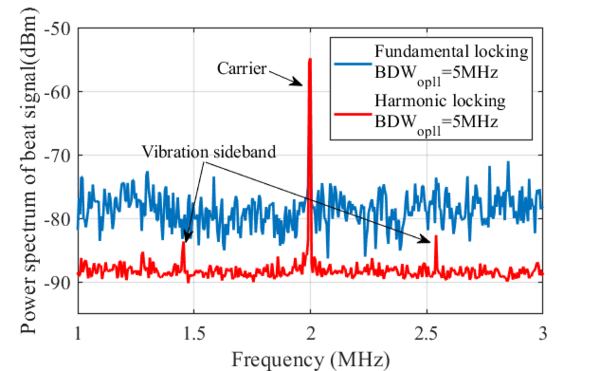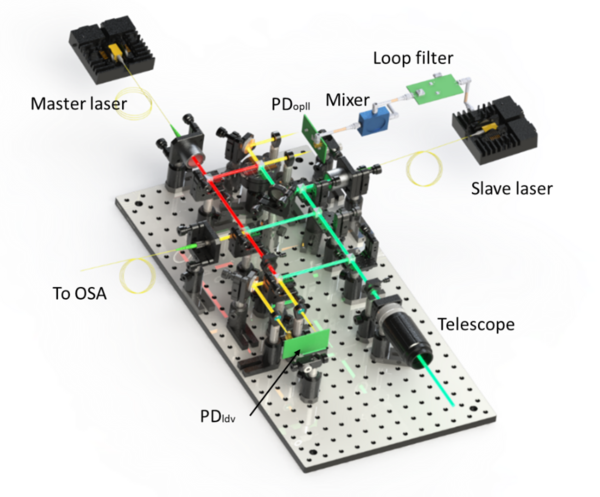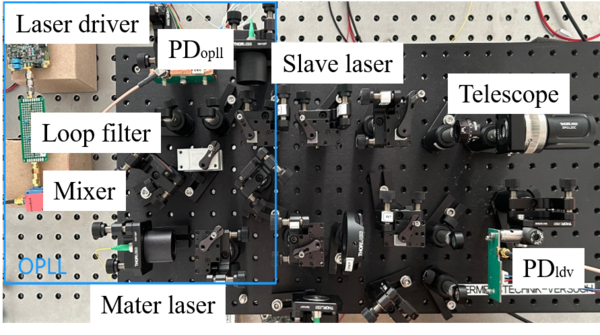Generation of a variable carrier frequency for laser doppler vibrometers based on an optical phase-locked loop
Generation of a variable carrier frequency for laser doppler vibrometers based on an optical phase-locked loop
State of the Art/Motivation
- Variable offset frequency cannot be achieved in the employment of conventional acoustooptic devices (e.g. Bragg cells). And the limited highest frequency of acoustooptic devices impose restrictions on its widespread application.
- Given the limitation of the relation between the carrier frequency and vibration frequency, conventional LDVs with acoustooptic devices are hardly applied for different measurements with a relatively large variation of vibration frequency.
- Disadvantages of conventional LDV in volume and price are against the portable tendency for instrument
- The feasibility and design criteria of employment of OPLL have been proofed preliminarily. The result has indicated the advantages of LDVs with a structure of OPLL in the generation of a variable carrier frequency and its alluring prospects.
Objects
- Investigation of the relation on the parameter of OPLL and LDV properties and building a relevant mathematical model as well as find an optimal solution with minimum noise.
- Establishment of experimental platform and realization of the variable carrier frequency generation.
Methods
- Variable carrier frequency generation in MHz with two diode lasers via frequency-offset-lock in a heterodyne optical phase-lock loop (OPLL).
- Building a mathematical model to explore the effect of the parameter in OPLL for LDV properties.
- Based on the change rule of LDV parameters (e.g. PSD of photocurrent) making decisions on the structure and devices of OPLL.
- Setting up an experimental platform for generation of the variable carrier frequency.
Experimental setup for the OPLL-LDV
1. Erzeugung eines variablen Trägers über eine optische Phasenregelschleife.
- Eine Heterodyn-OPLL wird mit einer Offset-Frequenz des lokalen Oszillators aufgebaut.
- Der Träger in LDV kann durch die offsetgesperrte OPLL ausgewählt werden.[1]
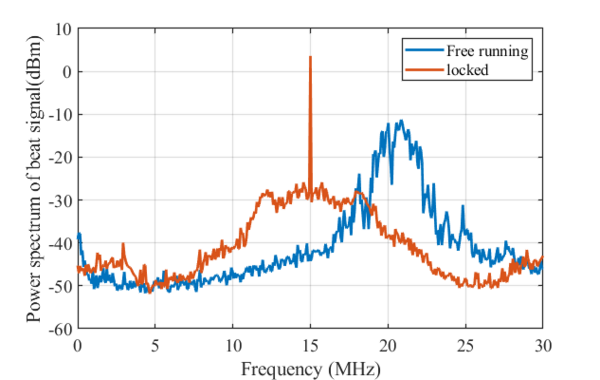
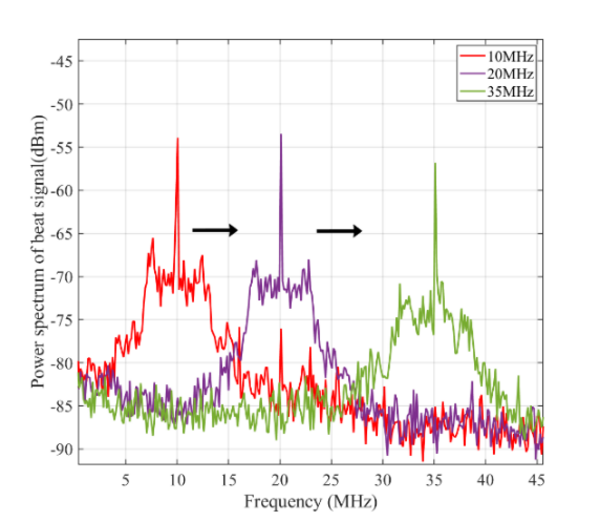
[1] Gao, Chunlin, and Christian Rembe. "A Variable Carrier Generation for Heterodyne LDV with an Optical Phase-locked Loop." In Journal of Physics: Conference Series, vol. 2698, no. 1, p. 012018. IOP Publishing, 2024.
2. improvement of noise performance through latency compensation in OPLL-LDV
- Create a mathematical model to study the effect of the parameter in OPLL for LDV characteristics
- Estimate the optimal working distance using the mathematical model
- Use the master laser as a measurement arm (with the estimation of the optimal working distance) to compensate the latency in the OPLL
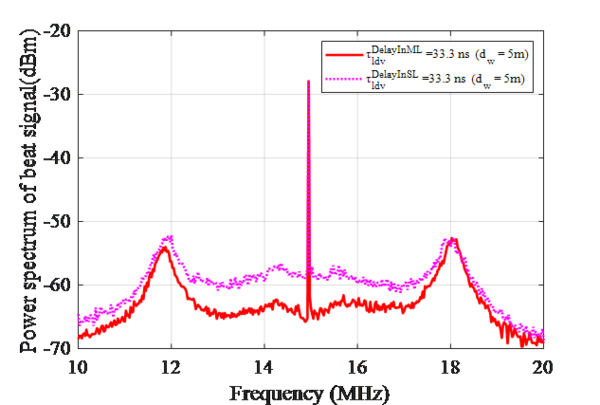
2. harmonic locking technology to improve the detection capability of OPLL-LDV for low-frequency carriers
- Complete the OPLL-LDV and improve stability
- Adjusting the frequency of the free-running beat signal to the harmonic component of the local oscillator signal
